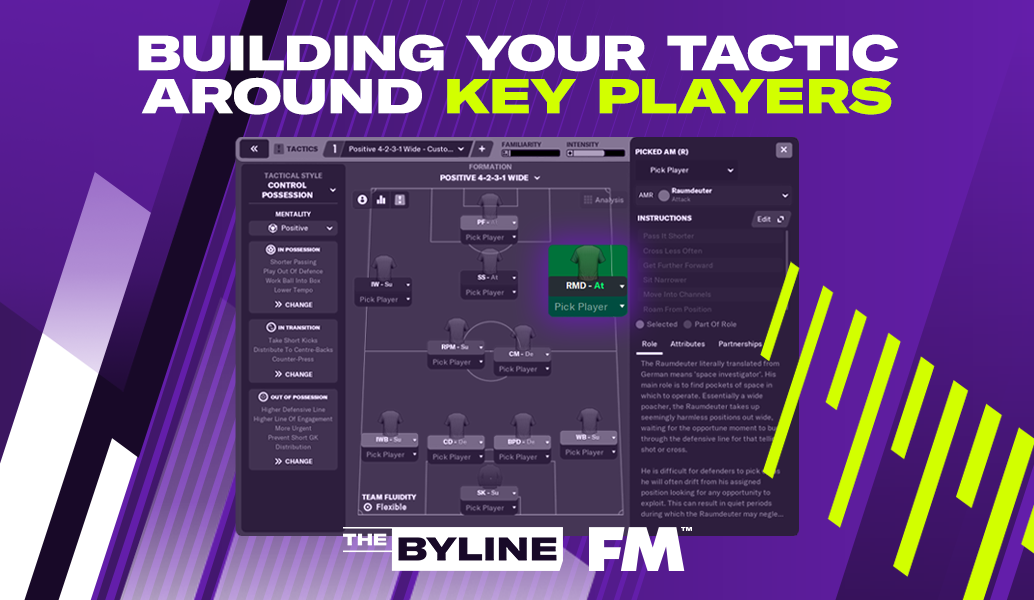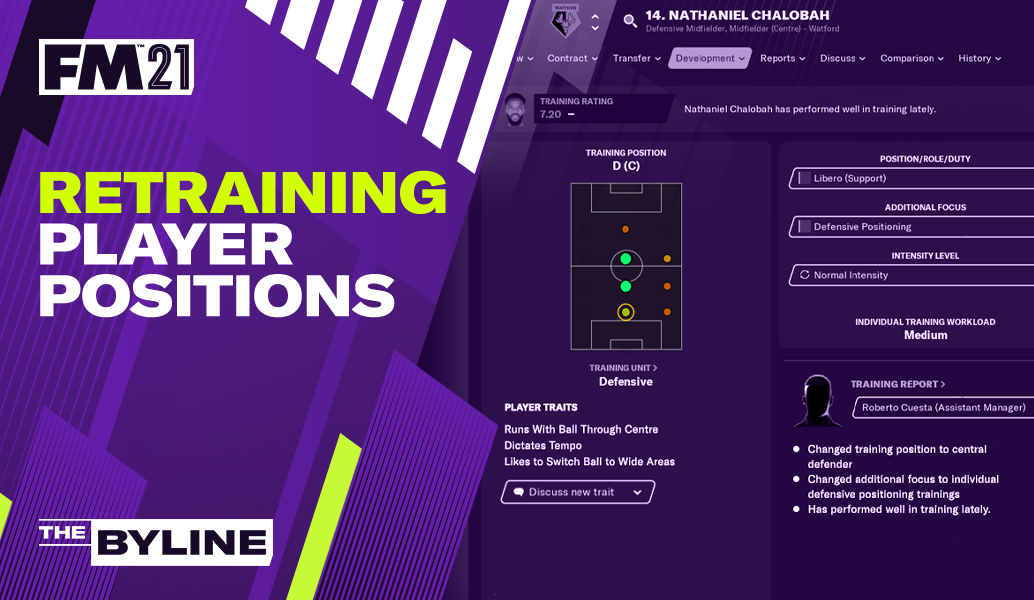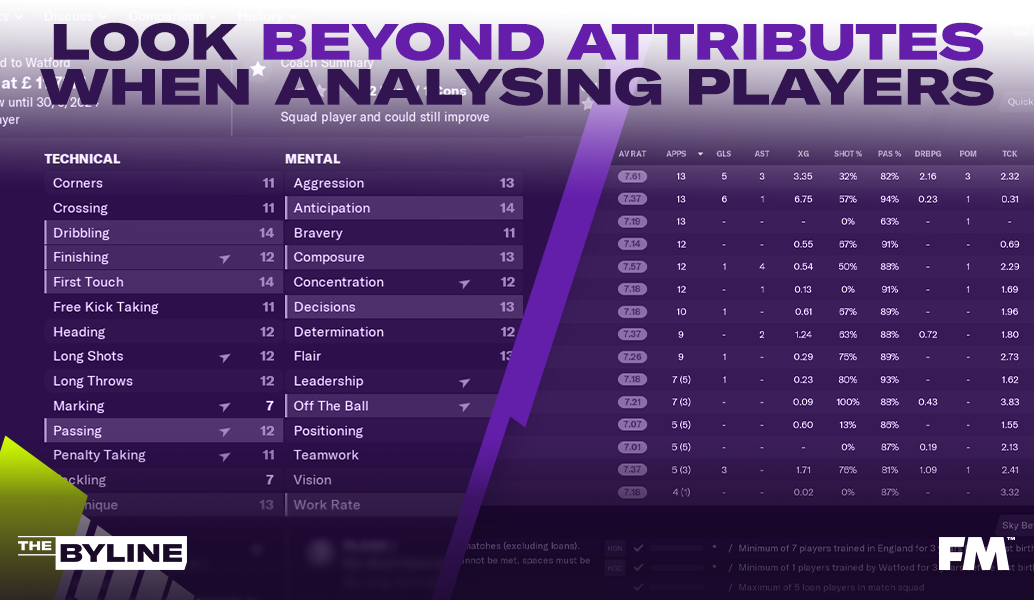How to utilise playmakers in your system
It's an eternal debate among Football Manager tactics aficionados. Is it best to use a single playmaker in your formation or multiple designated playmakers? Do you use an Advanced Playmaker, Deep-Lying Playmaker, or a Wide Playmaker? Ihor Crusadertsar will tell you that the answer is not that simple. Unsurprisingly, it all depends on your desired tactical style and what you are trying to achieve with your tactics. Ihor explains both how to use playmakers in your team and to get maximum results from them.
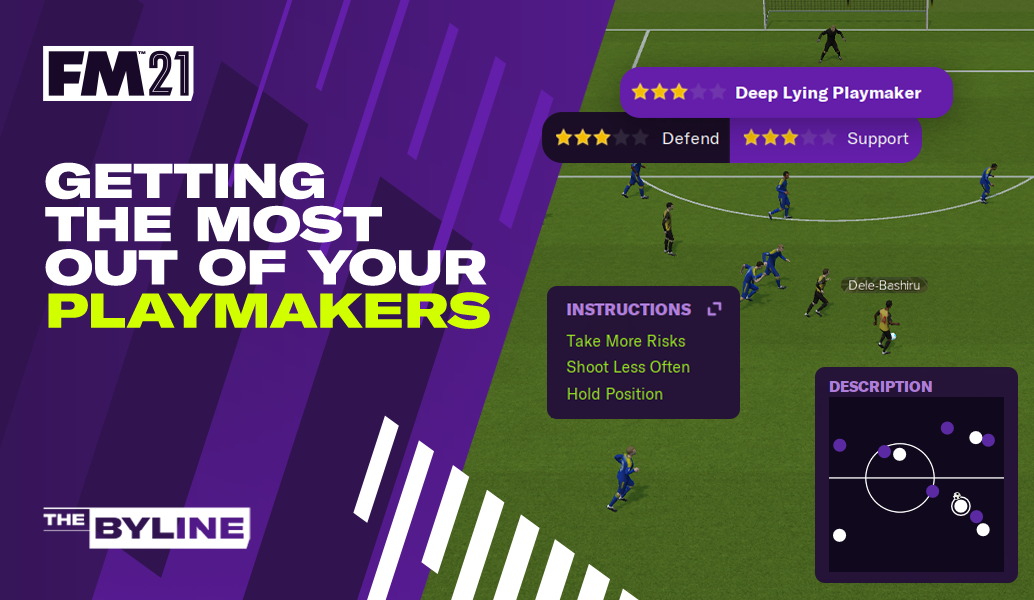
Using multiple playmakers could work very well in some tactics, as it has in real life with Tiki-Taka-esque slow build-up through the middle. On the other hand, it might be preferable to identify your best playmaking wizard and give him the full freedom to create magic on the pitch.
In the Italian tradition, you have your regista as the sole orchestrator directing the play for the rest of the team. This might work best in a formation built around a Deep-Lying Playmaker, like a 4-2-3-1 DM, 4-1-2-3 or even narrow diamond. With such a setup, your one special creator gets as much space as possible, allowing him to function as a sort of quarterback, picking out passes from deep while staying far away from opposition’s press.
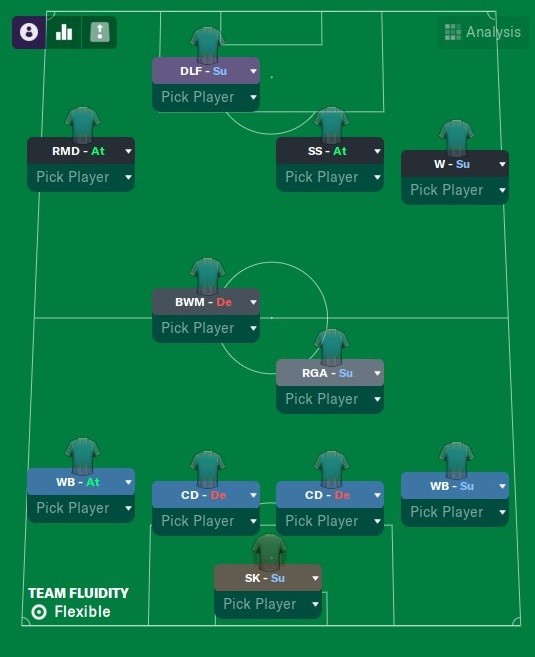
Note how much space there is around the playmaker (Regista) in this asymmetric 4-2-3-1 formation.
Identifying the right player
First things first. How do you determine whether you’ve got that one exceptional player needed for the critical playmaking role? Well unlike the questions I posed above, the answer to this one is much simpler. It all depends on the player's Attributes and Traits.
In every FM game, what each player can do is defined by their Attributes. So, if you want your player to act like a playmaker they absolutely need the right Attributes for this highly demanding role.
Firstly, a good playmaker needs to always be open to receiving the ball, whether through a long pass, cross, one-two or a lay-off. The effectiveness of a playmaker is judged by the amount of time they spend on the ball. It almost goes without saying that the better they are at receiving the ball from their teammates, the more opportunities they will get to create something with it. The two attributes that are most important for getting into open spaces and receiving passes are Anticipation and Off the Ball.
Once your playmaker has the ball, they must be able to pick out the right pass. Here their Decisions, Vision and Passing shine. Possessing good Flair will give their passes that extra boost which could make the difference between a missed chance and a key assist.
One of the side-effects of being a playmaker is that such players are veritable magnets. This is not just in how they attract the ball via passes from teammates. They are also magnets for opposition players who will try to mark them out of the game and/or steal the ball from him. Luckily there are attributes that help your playmaker deal with such situations. These include their Balance, Agility, Composure, First Touch, and, to an extent, their Dribbling. Decent values in all four of these attributes will ensure that your player is able to dodge, dribble away or stand firm in the face of intense opposition pressure. Again, their effectiveness as a playmaker depends on them keeping the ball and so the importance of these attributes cannot be underestimated.

Importance Of Traits
Hopefully the picture of an ideal playmaker, whether the deep-lying Regista or more advanced Trequartista, is starting to emerge. However, there is more to the art of playmaking than just player attributes. In all recent FM games there is an often-overlooked element that makes every player unique - unique Player Traits. Some managers have a tendency to overlook these when creating tactics, especially given the fact that it can take significant in-game time to teach a single trait to your player. Naturally, this takes away valuable training time needed to improve Attributes, but there is a good reason why traits should not be overlooked.

Traits can significantly affect how your players follow tactical instructions. More specifically, Player Traits override both individual and team instructions. This could make your tactic play completely differently from how you first envisioned it. For this reason, I prefer not to train player traits and instead often remove ones that contradict my tactic. Indeed, I prefer to give my players more tactical flexibility and freedom to rotate among different positions and roles within my tactic and having a specific trait might make such versatility difficult. For example, a central striker with the Likes to Beat The Offside Trap trait would no longer be suitable to play as your support duty striker whom you need to drop deep. While Comes Deep To Get Ball trait would be less than ideal in a more attacking striker who you want as a Poacher.
My only exception to the no traits rule is when it comes to playmakers. I believe it is the role that benefits most from having unique Traits. This is because some of the behaviors that these traits encourage would be very difficult or even impossible to replicate via team or player instructions. Ideally, you want your playmaker to operate on a higher level to the rest of your tactic. For example, even in a defensive style of play, you won't want your playmaker to be too cautious in his behavior, but using more risky instructions for the whole team might not be good for balance. To my mind, it's like trying to hit a tiny nail with a huge hammer. In this situation using traits will tell only the playmaker what to do, irrespective of the general team instructions.
Thus, with the help of his traits, your playmaker becomes the surgeon's scalpel of your tactic. But which traits are absolutely essential to a playmaker?
Dictates Tempo
The number one, quintessential playmaking Trait. This Trait basically gives your playmaker freedom to decide the speed of the game. Rather than following the tempo set by the team instructions, the player will make his own decisions to either slow the game down or increase the urgency of the passing. This can become an essential quality when trying to react to ultra-defensive opposition for example. Players with the dictates tempo trait give a lot of unpredictability to your tactic, something that’s especially difficult for defensive teams to deal with.
Arrives Late In Opponent's Area
I actually really like this Trait for all of my playmakers. It instructs the player to hang back and assess the situation while their teammates surge ahead into the penalty area. It's ideal for a playmaker because not only does it make them more difficult to mark but also grants them more space when they do eventually get forward.
Tries Killer Balls Often
This is basically the Pass into Space instructions rolled into Trait form. Pass into Space can be a powerful instruction for a team that's trying to exploit space behind the opposition defence. That said, I don't like all my players attempting it at once as it can make attacks too direct, leading to unnecessary loss of possession. On the other hand, when only your most creative player is allowed killer balls, you increase your chances of finding that one special, game-winning pass.
Likes To Switch Ball To Other Flank
Another Trait that can make your attacks more difficult for opposition to predict. It increases your playmaker's tendency to play dangerous cross-field passes. I see it as absolutely indispensable when trying to create overloads and exploit the space that opens up on the opposite flank. This trait becomes especially effective when you position your playmaker on the flank that you want to overload, while your fast, intelligent winger, the target of such switch passes, is on the opposite wing from the playmaker. This Trait is a perfect fit with the Wide Playmaker role.
Creating Space For Playmaking
Sometimes the centre of the pitch is not the best place for your playmaker. Advanced Playmakers will have to contend with the opponent's defensive midfield destroyers. Likewise, Roaming Playmakers in central midfield regularly come up against aggressive opposition pressing. So, how do you shield your playmaker from opposition pressure and assure that they get enough time and space on the ball to craft out passes for their teammates? I believe the answer to that is in playing your playmaker wide. The two wing options are either Advanced Playmaker in the AML/AMR position, or Wide Playmaker.
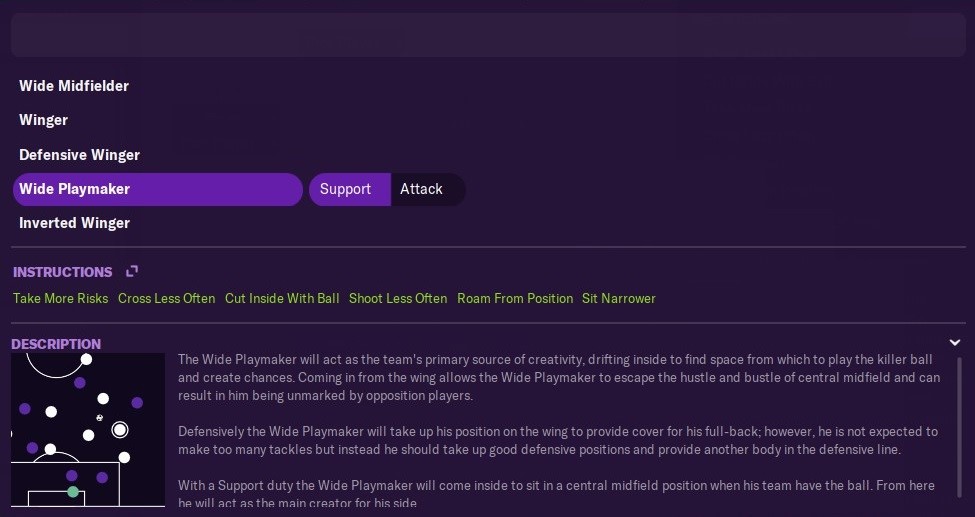
Both roles allow your playmakers to avoid the midfield possession battle by staying wide during the start of the build-up. According to the in-game description, cutting in from the wing allows your Wide Playmaker to escape the hustle of central midfield. It can also result in the being left unmarked by the opposition players. In order to take full advantage of the Wide Playmaker's skills, you have to make sure that the other roles around them are set up correctly. One key step is adding a defensively minded Central Midfielder next to the Wide Playmaker. If you then introduce an Advanced Forward ahead of this CM, you create plenty of room for the playmaker to move into.
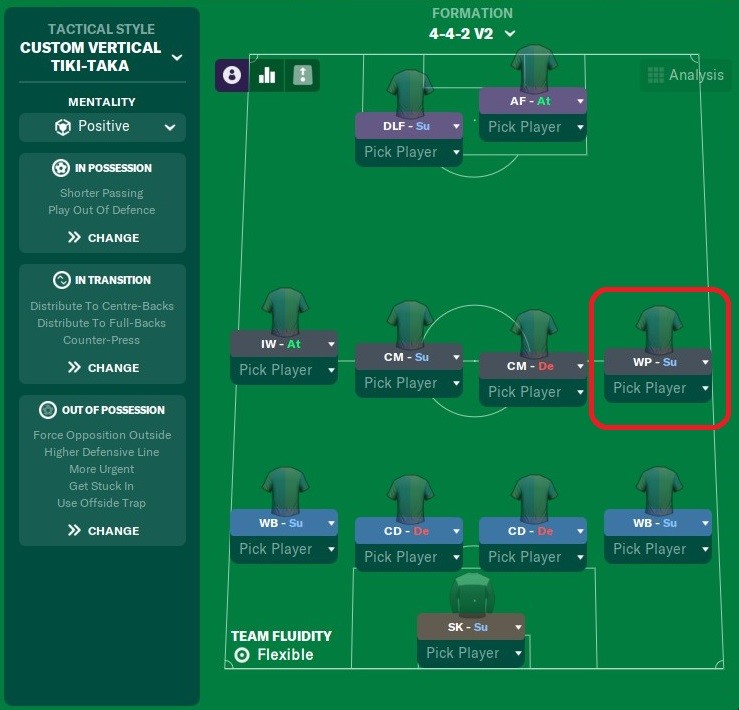
On the opposite flank you want an aggressive all-out winger and a more dynamic box-to-box player, potentially with the Get Forward player instruction to take advantage of any cross-field passes from the playmaker. This also means they can both feed passes to the Advanced Forward.
There you have it, the Art of Playmaking at its most simple. Don't hesitate to try out a Wide Playmaker in one of your own saves. You won't regret it.
Happy managing!















